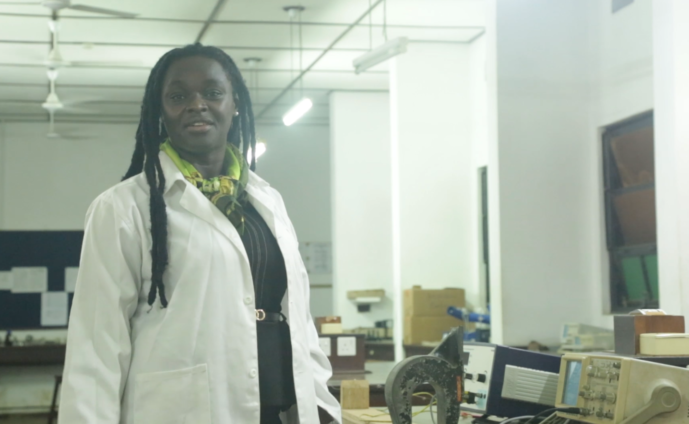Prof. Nana Ama Browne Klutse is the first Ghanaian to be elected as a Vice-Chair of the UN Intergovernmental Panel on Climate Change (IPCC).
The Head of the Physics Department at the University of Ghana is determined to make a strong case for the country on the global stage in climate change research and discussions.
Her Working Group I for the 7th assessment of the IPCC investigates the physical science foundations of past, current and future climate change.

Prof. Klutse and her physics students are overjoyed at her election.
Though this may sound exciting to students, Prof Klutse says the implications of climate change in Ghana and Africa are what she would present to the IPCC.
Coastal erosion, wildfires, dry spells, and erratic rainfall, among other issues, will be tackled by Prof Klutse as Vice Chair.
She would also look at the report to see if it is inclusive, comprehensive, and focuses on climate change research.
Prof Klutse was the only Ghanaian lead author in Working Group 1 (WG1), and she contributed to the ATLAS chapter's Africa part as well as other chapters pertaining to Africa.

She received her PhD in Climatology from the University of Cape Town in South Africa, and her research focuses on climate modeling and impacts.
Prof. Klutse was a Senior Research Scientist at the Ghana Atomic Energy Commission's Ghana Space Science and Technology Institute, where she was in charge of the Institute's Remote Sensing and Climate Center.
Prof Klutse and Prof. Inés Camilloni were elected as Vice-Chairs for the Intergovernmental Panel on Climate Change (IPCC) Working Group I, out of 195 countries that competed for the position.
Prof. Camilloni is an Argentine climatologist who specializes in South American climate change.

She works as an independent researcher at the Center for Research on the Sea and Atmosphere and as a professor at the University of Buenos Aires.
Prof. Camilloni was a lead author of the IPCC's fifth and special report on global warming of 1.5°C.
Prof Klutse, of the University of Ghana's Department of Physics, has been monitoring several students involved in climate research.
Linda Sarpong Acheampong, one of her students, believes Prof Klutse will not disappoint and that many young women will benefit from her extensive expertise.
The 7th IPCC Assessment Report has just started and will last five to seven years, allowing the Seventh Assessment Report (AR7) to feed into the UN Framework Convention on Climate Change (UNFCCC) global stocktake in 2028.
Latest Stories
-
Zenith Bank CSR shines through continuous investment in education
25 minutes -
NPP, Minority Caucus marches to EOCO over Hanan’s ‘punitive detention’
54 minutes -
WiN Ghana re-launched to empower women in nuclear science and technology
1 hour -
GAEC marks day of Scientific Renaissance of Africa with focus on nuclear and space technology for water management
1 hour -
GOC President challenges Baseball athletes to live the Olympic Values
1 hour -
COCOBOD introduces balanced scorecard approach to transform performance
2 hours -
24-Hour Economy policy: Game-changer that needs flawless execution
2 hours -
‘Badge on your chest not meant to intimidate’ – recruits reminded
2 hours -
Australian mother guilty of murdering three people with poisonous mushrooms
2 hours -
Ex-convict remanded for allegedly defrauding chief
3 hours -
Engineer jailed for GH¢150,000 tipper truck fraud
3 hours -
Robber jailed 19-years, another discharged for dishonestly receiving
3 hours -
Court jails man for attacking and robbing pregnant woman
3 hours -
Education Minister to lay Scholarship Authority Bill before Parliament
3 hours -
Dr John Apea to lead clemency petition for Ato Essien on justice and human rights grounds
4 hours

